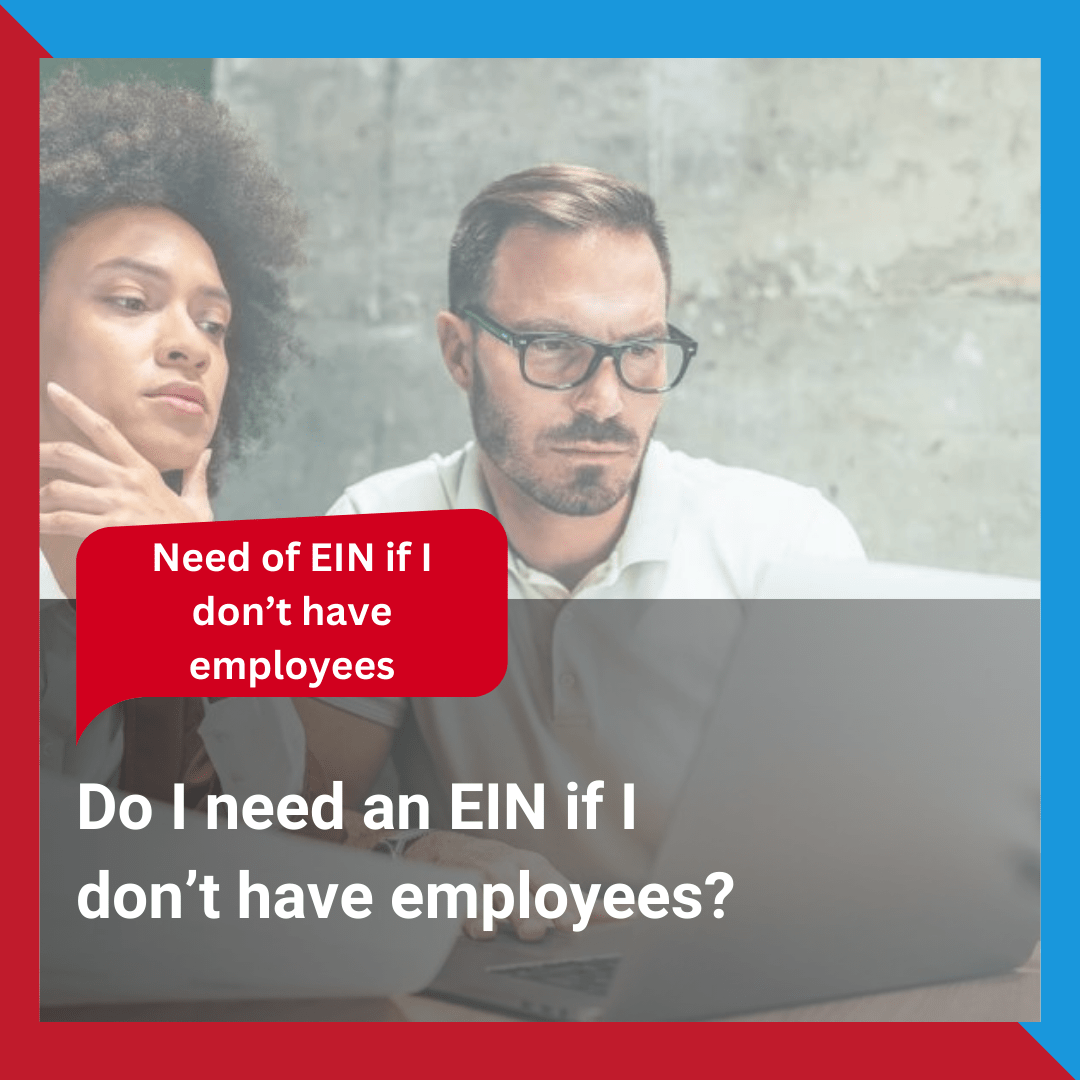Table of Contents
When starting a business, one of the questions that often arises is whether an Employer Identification Number (EIN) is necessary if you don’t have any employees. This blog will explore the various scenarios where an EIN is required, the importance of having an EIN, and the benefits it provides even if you are a sole proprietor or a small business owner without employees.
Understanding the EIN
What is an EIN?
An Employer Identification Number (EIN), also known as a Federal Tax Identification Number, is a unique nine-digit number assigned by the Internal Revenue Service (IRS). It is used to identify a business entity and is necessary for various tax and legal purposes.
Importance of an EIN
While an EIN is essential for businesses with employees, it also serves multiple purposes for businesses without employees. Here are some key reasons why an EIN might still be necessary:
- Business Identification: An EIN is used to identify your business in various transactions and filings.
- Tax Purposes: Even without employees, your business may have federal and state tax obligations that require an EIN.
- Legal Requirements: Certain legal structures and business activities necessitate having an EIN.
Ready to get your EIN? Apply online with our step-by-step guide and simplify your business processes today!

Scenarios Where an EIN is Required Without Employees
Even if you don’t have employees, there are numerous situations where having an EIN is mandatory or beneficial. Below, we delve into these scenarios in detail.
Sole Proprietorships
While sole proprietors without employees are not always required to obtain an EIN, there are specific situations where they might need one:
- Hiring Contractors: If you hire independent contractors and need to file Form 1099-MISC, an EIN is required.
- Tax Filing: Sole proprietors may need an EIN for certain excise tax filings or if they have a Keogh Plan (a tax-deferred pension plan for self-employed individuals).
Partnerships
All partnerships, regardless of having employees, must have an EIN. This is because the partnership must file an annual information return to report income, deductions, gains, and losses from its operations.
LLCs (Limited Liability Companies)
An LLC requires an EIN under several conditions:
- Multi-Member LLCs: All multi-member LLCs need an EIN.
- Single-Member LLCs: If the single-member LLC has employees or elects to be taxed as a corporation or S corporation, an EIN is necessary.
Corporations
Corporations, whether they have employees or not, must have an EIN. This includes:
- C Corporations: Required for filing corporate income taxes.
- S Corporations: Required for election of S corporation status and subsequent tax filings.
Non-Profit Organizations
Non-profit organizations need an EIN to apply for tax-exempt status, even if they do not have employees. An EIN is also necessary for filing annual information returns.
Estates and Trusts
Estates and trusts that are required to file income tax returns must have an EIN. This applies regardless of whether they have employees.
Additional Scenarios
Here are some other situations where an EIN is beneficial or required:
- Opening a Business Bank Account: Many banks require an EIN to open a business bank account.
- Applying for Business Licenses: Certain licenses and permits require an EIN.
- Federal Tax Returns: Filing certain federal tax returns (e.g., excise or alcohol, tobacco, and firearms returns) necessitates an EIN.
- Establishing Business Credit: An EIN is essential for establishing a business credit profile.
Benefits of Having an EIN
Having an EIN offers several advantages beyond meeting legal requirements. Here are some key benefits:
Simplified Tax Filing
An EIN simplifies the process of filing taxes and can help prevent delays in processing your tax returns. It also separates your personal and business tax filings, providing a clear distinction between the two.
Business Credit
Building business credit is crucial for securing loans and other forms of financing. An EIN is necessary for creating a business credit profile and obtaining credit in the name of your business.
Protecting Personal Information
Using an EIN instead of your Social Security Number (SSN) can help protect your personal information and reduce the risk of identity theft.
Hiring Employees
Even if you don’t have employees now, having an EIN will make the process easier if you decide to hire in the future. It ensures you are prepared for growth and expansion.
Enhancing Business Credibility
Having an EIN can enhance your business’s credibility with vendors, suppliers, and financial institutions. It demonstrates that your business is legitimate and well-established.

FAQs
1. Do I need an EIN for a sole proprietorship with no employees?
You generally do not need an EIN for a sole proprietorship with no employees unless you hire contractors, have a Keogh Plan, or need it for specific tax filings.
2. Can I use my Social Security Number instead of an EIN?
For sole proprietorships without employees, you can use your SSN. However, using an EIN provides additional benefits such as protecting your SSN and simplifying tax filings.
3. How do I apply for an EIN?
You can apply for an EIN online through the IRS website, by fax, by mail, or by phone if you are an international applicant.
4. How long does it take to get an EIN?
The processing time varies: online applications are immediate, fax applications take about four business days, and mail applications take 4 to 6 weeks.
By understanding the importance of an EIN and the various scenarios where it is required, you can make informed decisions about your business needs. Whether you are a sole proprietor, partnership, LLC, or corporation, having an EIN can provide numerous benefits and ensure compliance with federal and state regulations.

